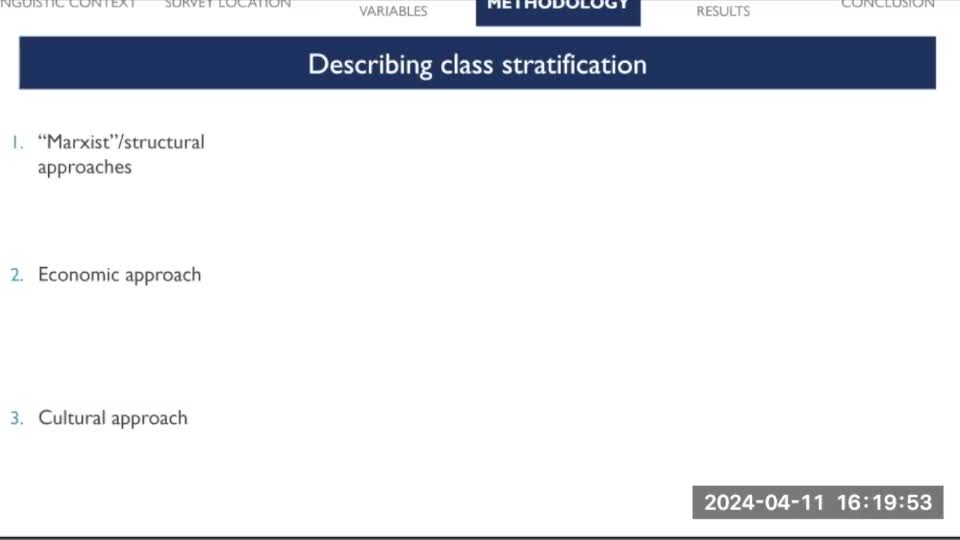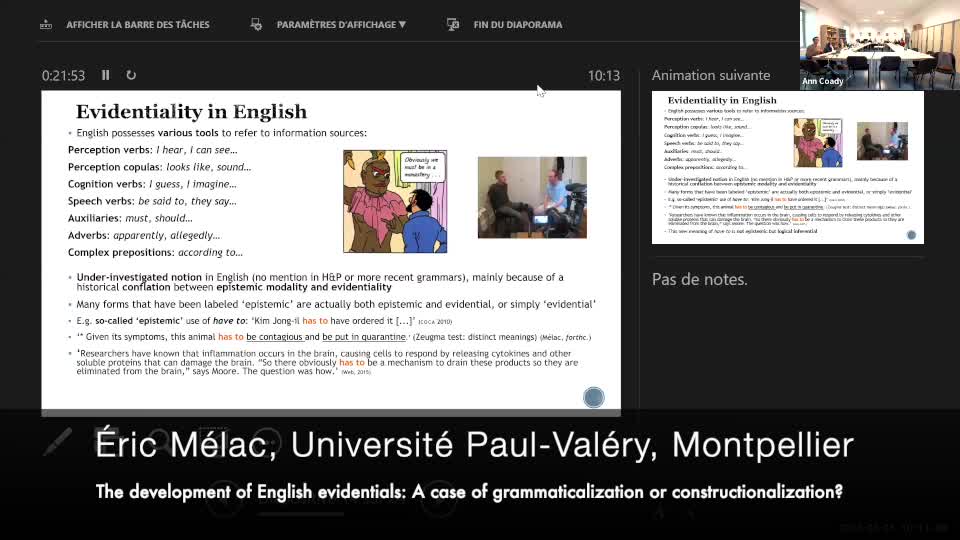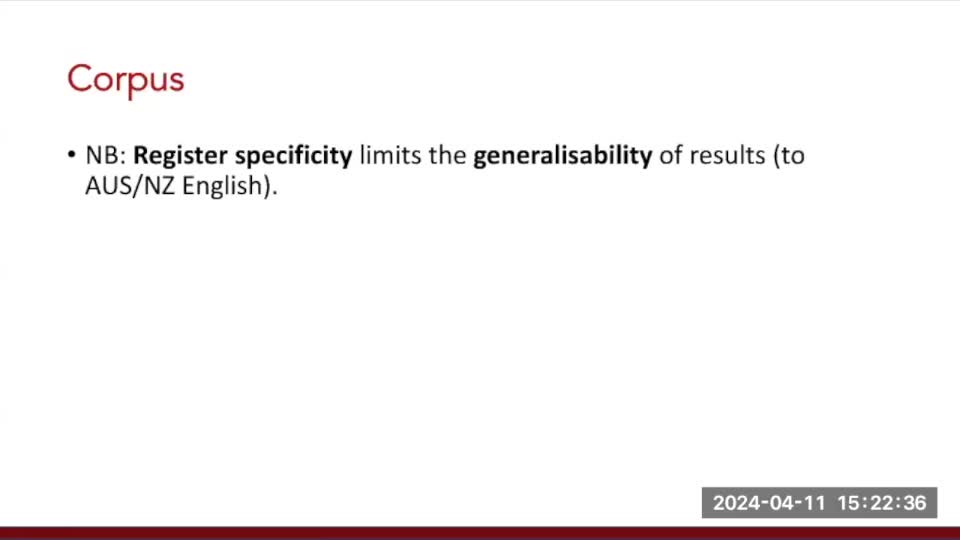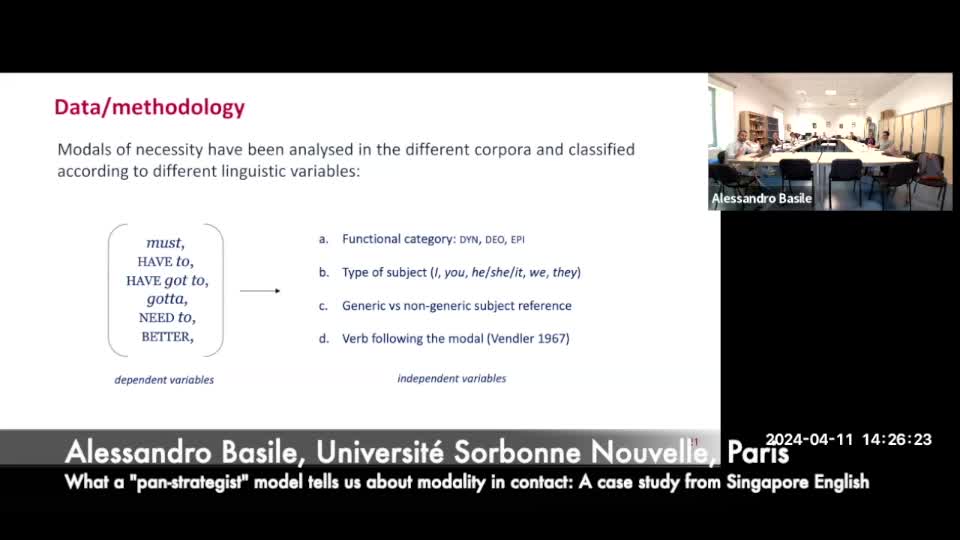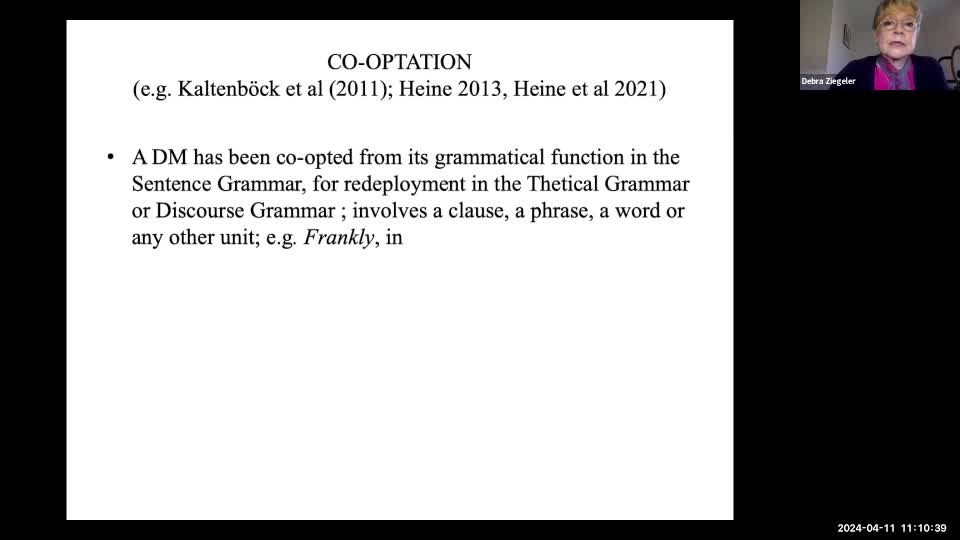Language change and variation in English
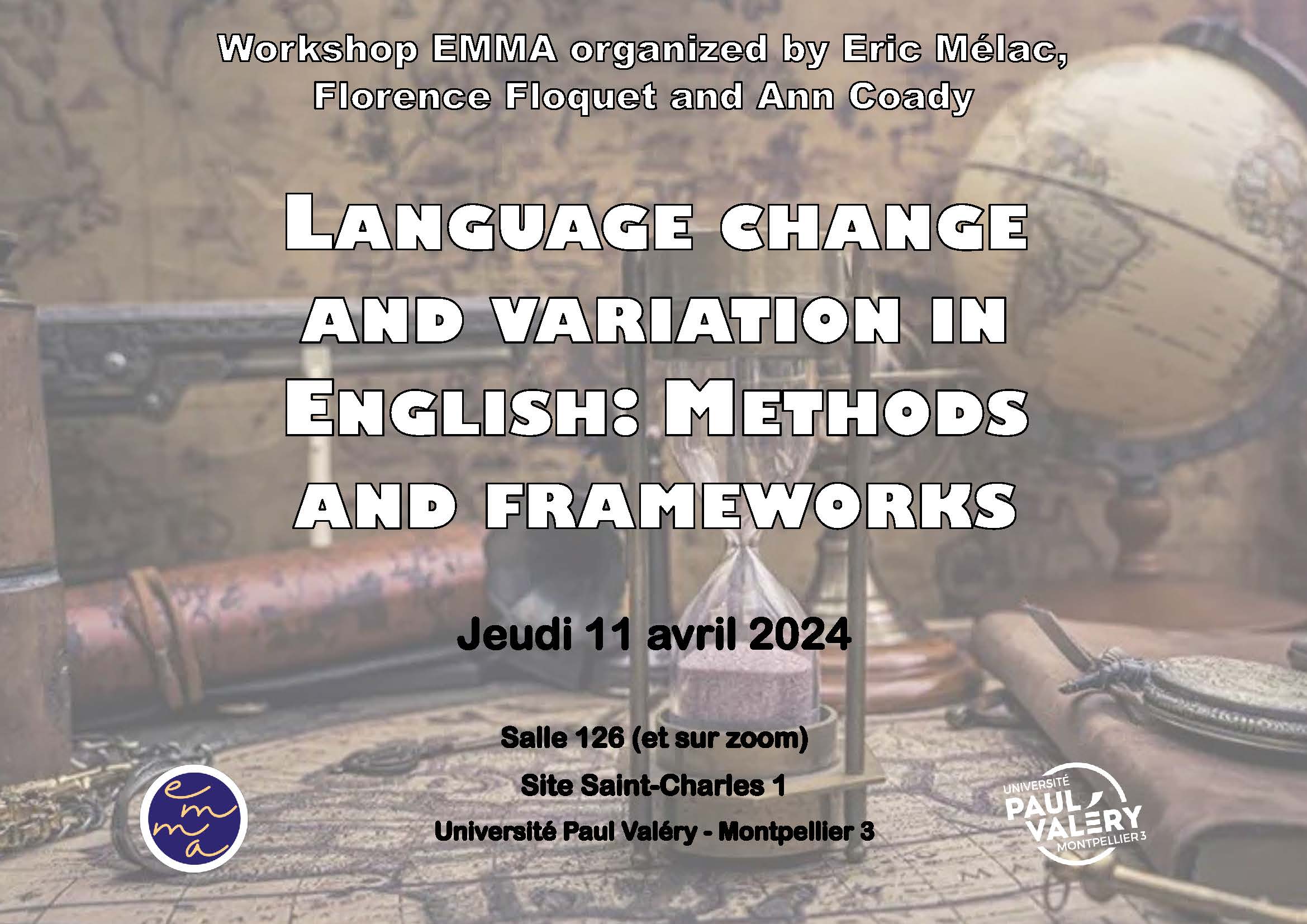
Descriptif
Cette journée d’études vise à discuter les nouvelles approches théoriques et méthodologiques du changement linguisique et de la variation. Les présentations porteront à la fois sur l’anglais dit « standard » et sur des formes dialectales de différents pays et strates sociales. Les intervenants présenteront leurs recherches récentes afin de débattre dans quelle mesure ces nouvelles données sur l’anglais nous permettent d’affiner ou remettre en question nos connaissances générales sur le changement et de la variation en langue.
Vidéos
"Investigating the social meaning of language variation in the US South: Epistemological elements o…
During this talk, I question the significance or relevance of using the different methodologies and epistemologies of the three “waves” of sociolinguistic research (following Eckert (2012)’s
"The development of English evidential markers: A case of grammaticalization or constructionalizati…
This paper aims to discuss the competing frameworks of grammaticalization and Diachronic Construction Grammar (henceforth DCxG) by examining which framework would better account for the development of
"Double modal constructions in Australian and New Zealand English: A computational sociolinguistic …
In this presentation, I report the first large-scale corpus study of double modal usage in Australian and New Zealand Englishes, based on a multi-million-word corpus of geolocated automatic speech
"What a “pan-stratist” model tells us about modality in contact: A case study from Singapore Englis…
This talk aims to explore the development of a set of modal constructions of necessity and strong obligation, namely must, have to, (have) got to, gotta, need to, and better, in the contact variety
"Can co-optation be replicated in contact? English final discourse particles in New Englishes", Deb…
The study of New English contact dialects has often referred to extensive borrowings from substrate languages, which include discourse markers, a category that Heine (2018: 43) referred to as amongst
Intervenants et intervenantes
Auteur d'une thèse de doctorat en Linguistique anglaise soutenue à Université Paris Cité en 2023
Auteur d'une thèse en Linguistique anglaise à Toulouse 2 en 2023
Auteur d'une thèse de doctorat en linguistique soutenue à Université Paris Cité en 2023
Auteur d'une thèse en Études du monde anglophone à Paris 3 en 2014
Professeure émérite en linguistique à l'Université Sorbonne Nouvelle (en 2024)


